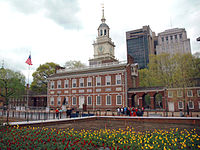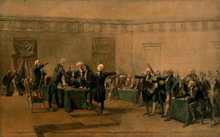
The Articles of Confederation and Perpetual Union was an agreement among the 13 states of the United States, formerly the Thirteen Colonies, that served as the nation's first frame of government. It was debated by the Second Continental Congress at Independence Hall in Philadelphia between July 1776 and November 1777, and finalized by the Congress on November 15, 1777. It came into force on March 1, 1781, after being ratified by all 13 colonial states. A guiding principle of the Articles was the establishment and preservation of the independence and sovereignty of the states. The Articles consciously established a weak confederal government, affording it only those powers the former colonies had recognized as belonging to king and parliament. The document provided clearly written rules for how the states' league of friendship, known as the Perpetual Union, would be organized.
The Continental Congress was a series of legislative bodies, with some executive function, for the Thirteen Colonies of Great Britain in North America, and the newly declared United States before, during, and after the American Revolutionary War. The Continental Congress refers to both the First and Second Congresses of 1774–1781 and at the time, also described the Congress of the Confederation of 1781–1789. The Confederation Congress operated as the first federal government until being replaced following ratification of the U.S. Constitution. Until 1785, the Congress met predominantly at what is today Independence Hall in Philadelphia, though it was relocated temporarily on several occasions during the Revolutionary War and the fall of Philadelphia.
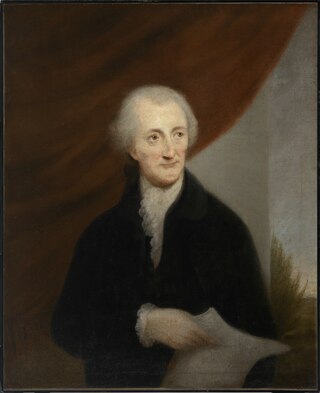
George Read was an American politician from New Castle in New Castle County, Delaware. He was a Continental Congressman from Delaware, a delegate to the U.S. Constitutional Convention of 1787, president of Delaware, and a member of the Federalist Party. In addition, Read served as U.S. Senator from Delaware and chief justice of Delaware.

Thomas Stone was an American Founding Father, planter, politician, and lawyer who signed the United States Declaration of Independence as a delegate for Maryland. He later worked on the committee that formed the Articles of Confederation in 1777. He acted as president of Congress for a short time in 1784. Stone was a member of the Maryland Senate from 1777 to 1780 and again from 1781 to 1787.

The president of the United States in Congress Assembled, known unofficially as the president of the Continental Congress and later as president of the Congress of the Confederation, was the presiding officer of the Continental Congress, the convention of delegates that assembled in Philadelphia as the first transitional national government of the United States during the American Revolution. The president was a member of Congress elected by the other delegates to serve as a neutral discussion moderator during meetings of Congress. Designed to be a largely ceremonial position without much influence, the office was unrelated to the later office of President of the United States.

The Second Continental Congress was the late 18th-century meeting of delegates from the Thirteen Colonies that united in support of the American Revolution and the Revolutionary War, which established American independence from the British Empire. The Congress constituted a new federation that it first named the United Colonies, and in 1776, renamed the United States of America. The Congress began convening in Philadelphia, on May 10, 1775, with representatives from 12 of the 13 colonies, after the Battles of Lexington and Concord.
The Annapolis Convention, formally titled as a Meeting of Commissioners to Remedy Defects of the Federal Government, was a national political convention held September 11–14, 1786 at Mann's Tavern in Annapolis, Maryland, in which twelve delegates from five U.S. states gathered to discuss and develop a consensus on reversing the protectionist trade barriers that each state had erected. At the time, under the Articles of Confederation, each state was largely independent from the others, and the national government had no authority to regulate trade between and among the states. New Hampshire, Massachusetts, Rhode Island, and North Carolina had appointed commissioners, who failed to arrive in Annapolis in time to attend the meeting, and Connecticut, Maryland, South Carolina, and Georgia had taken no action at all. The convention also related to George Washington's plans concerning the waterways connecting the Potomac and the Ohio River.

The Founding Fathers of the United States, often simply referred to as the Founding Fathers or the Founders, were a group of late-18th-century American revolutionary leaders who united the Thirteen Colonies, oversaw the War of Independence from Great Britain, established the United States of America, and crafted a framework of government for the new nation.

Gunning Bedford Jr. was an American Founding Father, delegate to the Congress of the Confederation, Attorney General of Delaware, a delegate to the Constitutional Convention in 1787 which drafted the United States Constitution, a signer of the United States Constitution, and a United States district judge of the United States District Court for the District of Delaware.

James Duane was an American Founding Father, attorney, jurist, and American Revolutionary leader from New York. He served as a delegate to the First Continental Congress, the Second Continental Congress and the Congress of the Confederation, a New York state senator, the 44th Mayor of New York City, the 1st post-colonial Mayor of New York City and a United States district judge of the United States District Court for the District of New York. Duane was a signatory of the Continental Association and the Articles of Confederation.
John Haring was an American lawyer from New York. During his long political career, he was a delegate to the First Continental Congress and Congress of the Confederation, served as president pro tempore of the New York Provincial Congress, served in both the New York State Legislature and New Jersey Legislature, and was a presidential elector.
William Churchill Houston, a Founding Father of the United States, was a teacher, lawyer and statesman. Houston served as a delegate representing New Jersey in both the Continental Congress and Constitutional Convention. He was elected to the American Philosophical Society in 1780.
Thomas Sim Lee was an American planter, patriot and politician who served as Maryland Governor for five one-year terms, as well as in the Congress of the Confederation (1783–84), Maryland Ratification Convention of 1788 and House of Delegates in 1787. He also held local offices and owned many town lots in Georgetown (which became part of the new federal city, Washington, District of Columbia, and spent his final decades operating "Needwood" plantation in Frederick County, Maryland. In addition to working closely with many of the Founding fathers, he played an important part in the birth of his state and the nation.
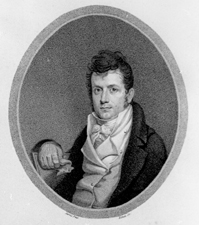
Alexander Contee Hanson was an American lawyer, publisher, and statesman. He represented the third district of Maryland in the U.S. House, and the state of Maryland in the U.S. Senate.

The Congress of the Confederation, or the Confederation Congress, formally referred to as the United States in Congress Assembled, was the governing body of the United States from March 1, 1781, until March 3, 1789, during the Confederation period. A unicameral body with legislative and executive function, it was composed of delegates appointed by the legislatures of the several states. Each state delegation had one vote. The Congress was created by the Articles of Confederation and Perpetual Union upon its ratification in 1781, formally replacing the Second Continental Congress.

The drafting of the Constitution of the United States began on May 25, 1787, when the Constitutional Convention met for the first time with a quorum at the Pennsylvania State House in Philadelphia, Pennsylvania to revise the Articles of Confederation. It ended on September 17, 1787, the day the Frame of Government drafted by the convention's delegates to replace the Articles was adopted and signed. The ratification process for the Constitution began that day, and ended when the final state, Rhode Island, ratified it on May 29, 1790.

The Perpetual Union is a feature of the Articles of Confederation and Perpetual Union, which established the United States of America as a political entity and, under later constitutional law, means that U.S. states are not permitted to withdraw from the Union.
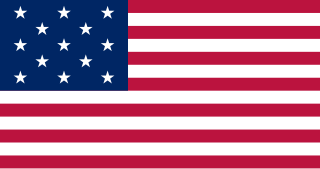
The Confederation period was the era of the United States' history in the 1780s after the American Revolution and prior to the ratification of the United States Constitution. In 1781, the United States ratified the Articles of Confederation and Perpetual Union and prevailed in the Battle of Yorktown, the last major land battle between British and American Continental forces in the American Revolutionary War. American independence was confirmed with the 1783 signing of the Treaty of Paris. The fledgling United States faced several challenges, many of which stemmed from the lack of an effective central government and unified political culture. The period ended in 1789 following the ratification of the United States Constitution, which established a new, more effective, federal government.
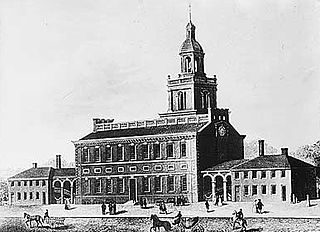
The Pennsylvania Mutiny of 1783 was an anti-government protest by nearly 400 soldiers of the Continental Army in June 1783. The mutiny, and the refusal of the Executive Council of Pennsylvania to stop it, ultimately resulted in Congress of the Confederation vacating Philadelphia and the creation of a federal district, ultimately developed as Washington, D.C., to serve as the national capital.

William Paca was a Founding Father of the United States who was a signatory to the Continental Association and the United States Declaration of Independence. He was a Maryland delegate to the First Continental Congress and the Second Continental Congress, governor of Maryland, and a district judge of the United States District Court for the District of Maryland.
